Announcing the 2022 Early Childhood Global Reporting Fellows
The Dart Center has announced the recipients of its Early Childhood Global Reporting fellowship. The fellows will work on stories across the world that address inequality, migration, and Covid-19. Learn more about the 15 fellows and their projects below.
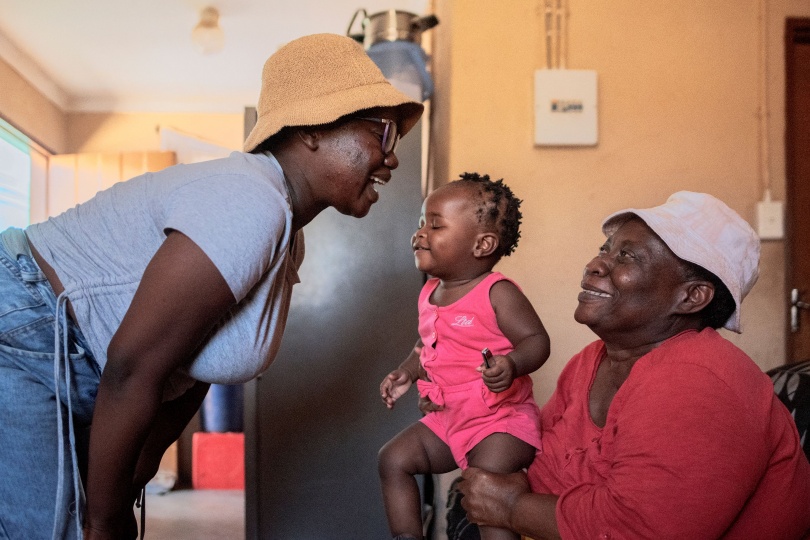
Smusa Wenkeosa (L), 22, who suffers severe breathing pathologies and kidney failure, is seen in her house in Vosman, Mpumalanga, on March 31, 2022 with her daughter Velo (C), 1, who is suffering from asthma, and her mother Thandive (R), 62. In a groundbreaking ruling, a court has ordered the South African government to reduce air pollution in a coal-mining belt ranked by Greenpeace as the world's most polluting cluster.
The Dart Center for Journalism and Trauma has announced the recipients of its 2022 Early Childhood Global Reporting Fellowship. The program will support 15 journalists around the world undertaking projects on the effects of the coronavirus pandemic on young children’s growth, development and wellbeing.
Fellows will undertake stories on the effects of Covid-19 on Roma communities and on caregiver support programs in South Africa, as well the experiences of AIDS orphans over the years and how those lessons can help children orphaned by COVID-19.
The Fellowship, running from May through November, is being led by audio journalist, Karen Brown, in collaboration with independent journalists Irene Caselli and Joanne Silberner, and CNN Investigates senior writer, Bob Ortega.
This Fellowship has been made possible by generous grants from the Bernard van Leer Foundation (Netherlands), the Maria Cecilia Souto Vidigal Foundation (Brazil), and The Two Lilies Fund (United States).
"Around the world, this is a difficult time for young children and their caregivers. Escalating adversity in early childhood -whether from the COVID-19 pandemic, war, economic inequality, violence, or environmental disasters all have a lifelong impact. The extraordinary journalists chosen for the Dart Center’s Early Childhood Reporting Fellowship program are deeply committed to illuminating these critical issues, drawing on evidence-based science and policy to and produce reporting that makes a difference in their regions and around the globe." Bruce Shapiro, Executive Director of the Dart Center
Below are the fifteen fellows and brief descriptions of their projects, alongside introductions to the faculty:
FELLOWS
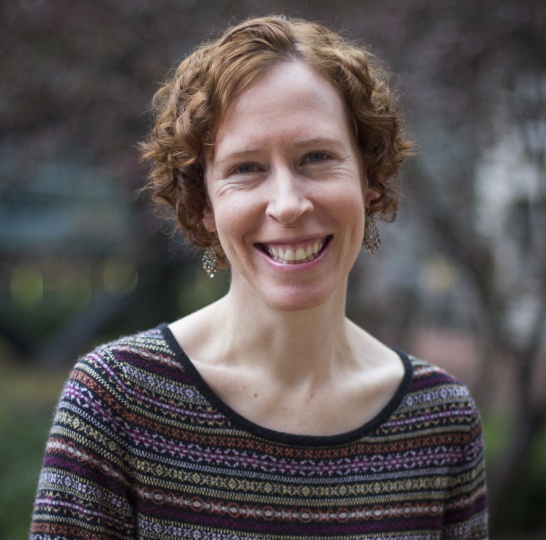
Carr is the author of “Hope Against Hope,” which tells the story of the post-Katrina New Orleans schools through the experiences of a student, a teacher, and a family. The book was chosen as a campus-wide read at Tulane University and Macalester College. She began her journalism career as a staff writer at The Chronicle of Higher Education, and also served as the city schools reporter at the Milwaukee Journal Sentinel and the New Orleans Times-Picayune.
Project: Carr will report on the challenges and promise of the U.S.'s early intervention program for infants and toddlers who face developmental delays. She aims to both scrutinize gaps in access to the critical services, and highlight local models of success.
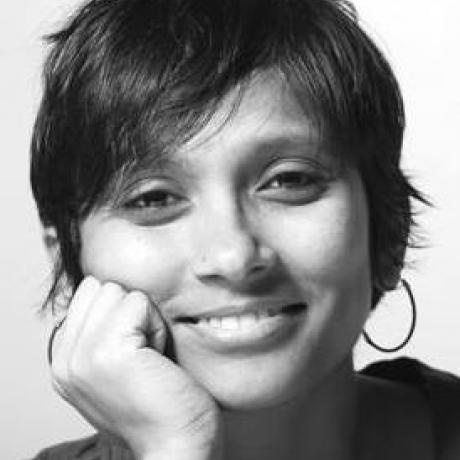
Most recently, Chatterjee has documented the impact of the pandemic and related public health measures on the mental health and wellbeing of children and adolescents, and how schools and healthcare providers are collaborating to expand access to mental health care for kids. Chatterjee has also reported on how chronic stress from racism has a devastating impact on pregnancy outcomes in black women. She has written about the factors that put adolescents and youth on a path to school shootings, and what some schools are doing to keep them off that path. She has also written about the widespread levels of loneliness and lack of social connection in America and its consequences of people's mental and physical health.
Before starting at NPR's health desk in 2018, Chatterjee was an editor for NPR's The Salt, where she edited stories about food, culture, nutrition, and agriculture. Prior to that, Chatterjee reported on current affairs from New Delhi for PRI's The World, and covered science, health and environmental news for the show as a Boston-based correspondent. Chatterjee grew up in India, and has a Master of Arts degree in journalism from the University of Missouri.
Project: The project will also focus on what researchers have learned from following AIDS orphans over the years and how those lessons can benefit COVID-19 orphans.
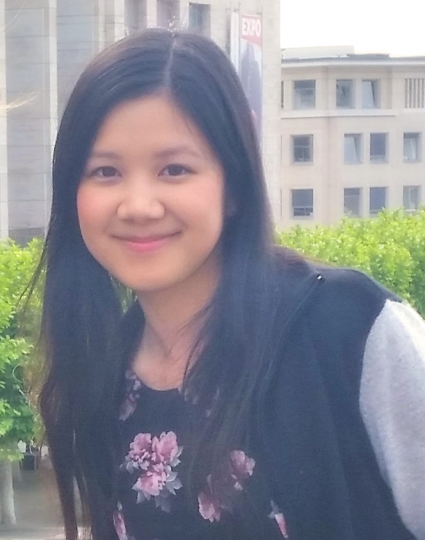
Project: As the city’s housing crisis remains unsolved, more than 90,000 low-income households in Hong Kong currently live in squalid and poorly ventilated subdivided flats. Chow's story will look at children’s prolonged exposure to the constricted living environment and the long-term effects on their physical and mental health and will highlight how the COVID-19 pandemic has laid bare the health inequality experienced by low-income neighborhoods, and how community-based social service providers struggle to address their needs as Hong Kong’s once-vibrant grassroots civil society networks crumble in light of the recent political crackdown.
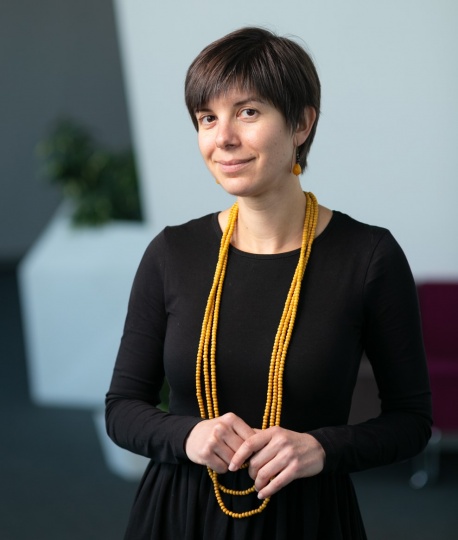
Project: The reporting will explore the impact of the pandemic on Roma children and their caregivers, with an emphasis on the inherent inequalities that have affected Roma communities even before Covid and how poor early childhood care and educational opportunities prevent them from escaping the cycle of poverty and social exclusion.
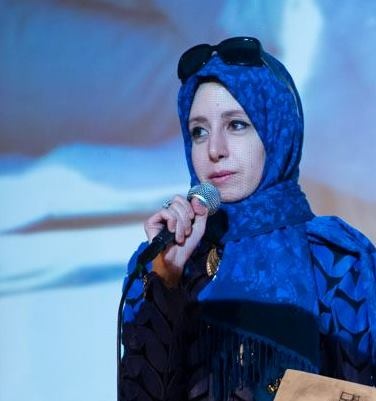
Project: The project explores the impact on the children of female migrant workers on the frontlines of Covid-19 pandemic in Turkey, and within refugee groups. While these marginalized communities are fighting on a different level to make impactful contributions in their host countries, the project investigates the children's consequences given their migrant status and challenging working conditions.
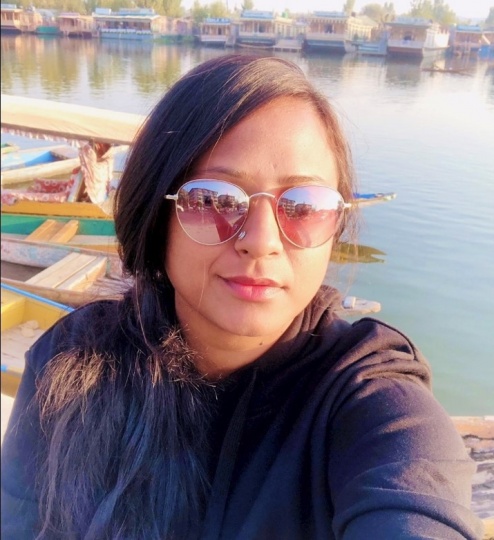
Project: The project will focus on children in Afghanistan that have been addicted to opium since birth due to breastfeeding or mothers dispensing Opium to manage challenging children. The special focus of my story is a mother of 2 daughters who are both struggling with addiction to opioids.
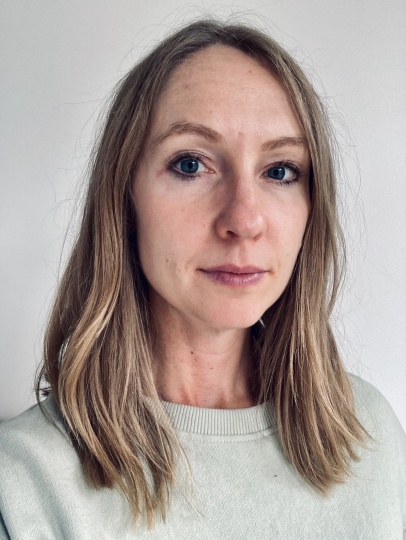
Project: Ukraine’s children – Who can save their futures? Life for Ukraine’s youngest children has never been ‘normal’. First, a two-year pandemic. Now, war. Jozwiak will investigate how these double traumas are affecting Ukrainian children aged up to six, and their families, in Ukraine or in counties to which they have fled. She will seek to bring the damage they have suffered to public view, and discover whether enough psychological interventions are available to steer their future development away from the damaging experiences they have suffered.
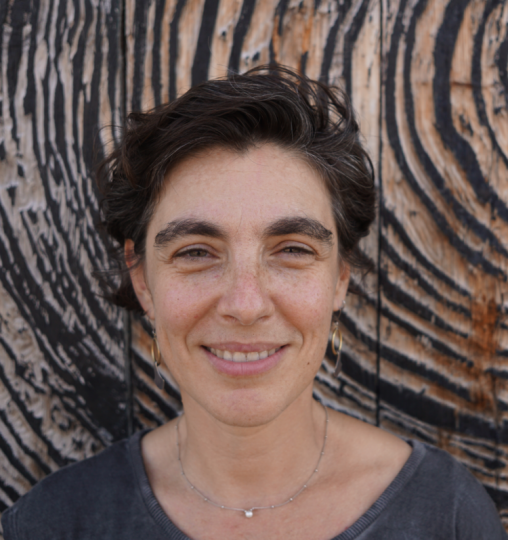
Project: Katsnelson's reporting project will examine the scientific and the social dimensions of using AI-enabled robots to help teach children how to navigate their social and emotional lives. She will investigate what the therapeutic need is for such tools, both for neurodiverse and neurotypical children, how these complex human abilities get encoded into a machine, and how researchers are thinking about safeguards to ensure that this technology to be ethically and equitably developed and deployed.
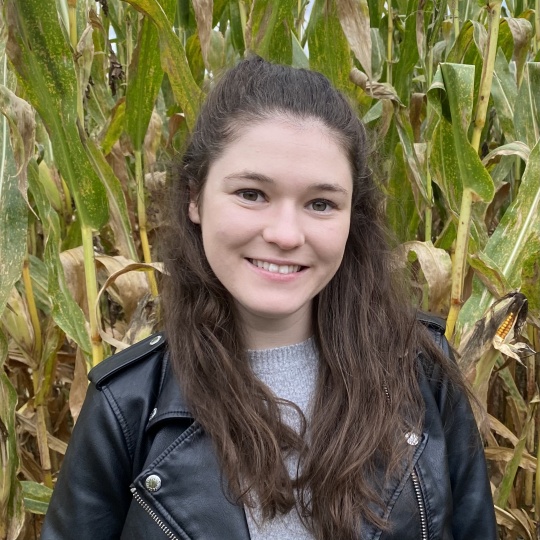
Project: Nearly three years after the fall of the last ISIS stronghold, hundreds of women and children from Central Asia remain stuck in camps and prisons in Syria and Iraq, with countries like Kyrgyzstan refusing to take most of them back. Those children that have been allowed to return face challenges in a society that views them as threats. This story will examine what it means to “reintegrate” a child in Kyrgyzstan, as well as how advocates and activists grapple with the decision to separate children from their mothers.
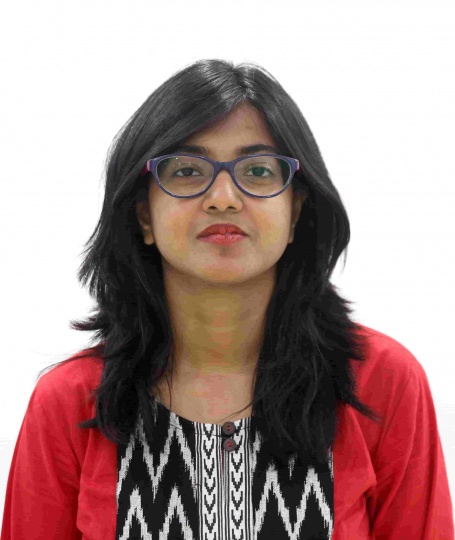
Project: The project will narrate the struggles of children born from trafficking, rape and child marriage in the climate vulnerable Sundarbans. Born to minor mothers in most cases, the stories will examine how children are left out of the social safety net amid lack of rehabilitation schemes. Stigma runs deep affecting their emotional health, and access to nutrition and education remains a challenge. The narrative will map out the struggles of the undocumented scale of distress of these children, and the lacunae in government policy-making around it.
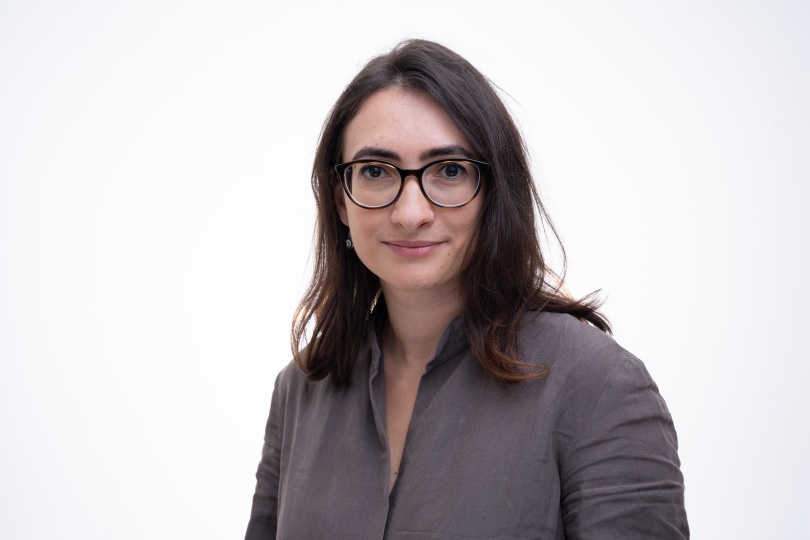
Project: Will report and write a series of articles about early childhood in Romania's vulnerable, poor communities and answer these questions: What does Romanian society stand to lose if decision makers do not see early education as an investment period for children born into poverty and in families with a history of domestic violence, at the same time having few educational resources. And what are the solutions that social workers and local NGOs have thought of in recent years to change the situation and to what extent can they be replicated by the authorities?
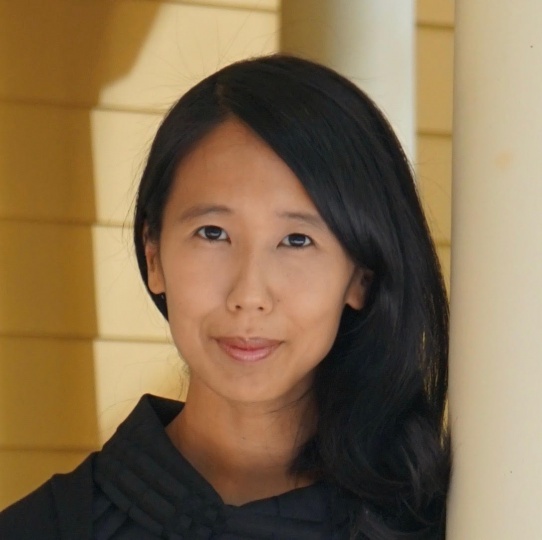
Project: Reporting on mental health interventions addressing the needs of recent Chinese immigrant families – many who live below the poverty line in US Chinatowns. She will be exploring how caregivers in these communities are closing developmental gaps in young children.
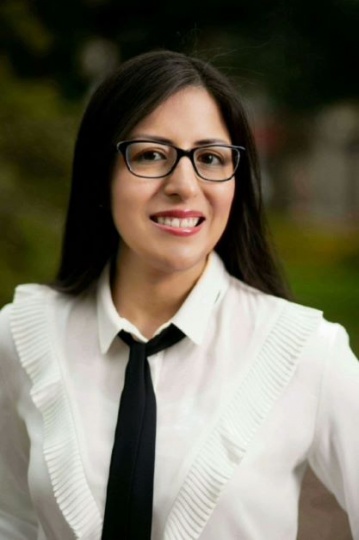
Project: The project will explore the Peruvian government’s program for early childcare, which has undergone immense stress under Covid. The project will include an in-depth study of the problems facing childcare providers and potential solutions.
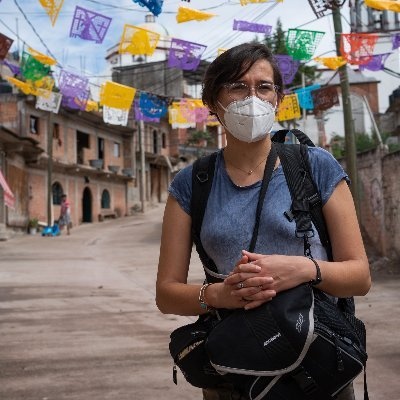
Project: The project will look at how young migrant children and their teachers adapt to one another in Tijuana, Mexico, a destination for migrants and refugees who couldn’t make it into the United States and are now settling in the border city.
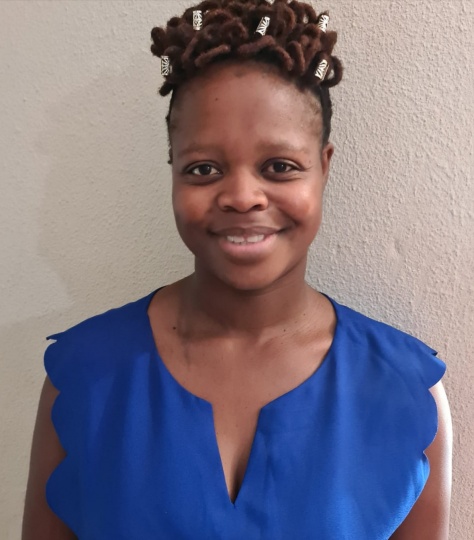
Project: This project aims to highlight how the current social assistance structure is failing children and their caregivers. It will also look at how NGOs are trying to come up with solutions through initiatives that provide meals for poverty stricken caregivers and their small children. It will finally look at the role of the government in offering support and protection for vulnerable women and children through the Department of Social Development.
Fellowship Faculty
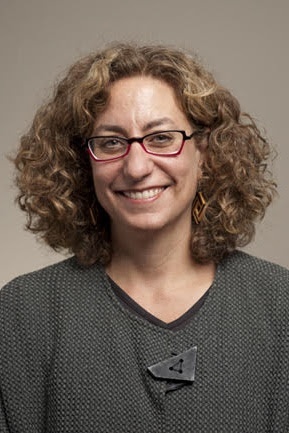
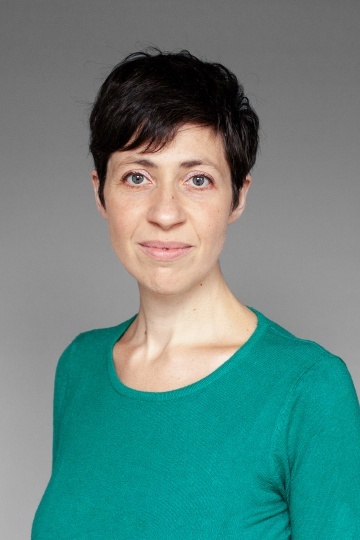
For a decade, Caselli was a foreign correspondent in Latin America, reporting for the BBC, The Washington Post, The Guardian, The New York Times and others. In 2019, she started covering early childhood for The Correspondent. In January 2021, she launched her own newsletter, The First 1,000 Days, where she continues her writing about the first 1,000 days, the foundational period of our lives that is too often overlooked. Caselli published a chapter in “Unbias the News,” a book about how to make journalism more diverse. She produced a documentary on women’s football and gender inequality, and one of her short films on the same subject received a prize for collaborative journalism.
Caselli has been awarded fellowships by the International Women’s Media Foundation, the European Journalism Centre and the Solutions Journalism Network. She speaks six languages (English, Italian, Spanish, German, French, Portuguese), and is now learning Greek. In her free time, she plays with her son Lorenzo.

Beginning his journalism career in Alaska, Ortega worked as a television reporter in Fairbanks, Juneau, and Anchorage and later moved into print journalism at the Anchorage Times, where he uncovered a military program testing deadly biological and chemical agents in a remote military base near Delta, Alaska. Ortega later served as managing editor of the Homer News, and moved to the Seattle Times and the Wall Street Journal where he reported on child labor and other issues. While at the Journal, Bob wrote "In Sam We Trust: The Untold Story of Sam Walton and Wal-mart, the World's Largest Retailer."
Ortega spent ten years working overseas training journalists in investigative reporting in countries such as Paraguay, Georgia, Belarus and Ukraine, working through a military coup in Paraguay and revolutions in Georgia and Ukraine. A program he led to assist independent news media in Belarus was shut down by the Lukashenko regime, which revoked his visa and forced him to leave the country.
Ortega is the recipient of the Hillman Prize for social justice reporting, and the Ancil Payne Award for Ethics in Journalism. In 2013, he also received the Sidney Award for reporting on a deeply flawed and widely used screening test for cervical cancer. He served as a Knight International Press Fellow in Paraguay, and has trained journalists in 17 countries on four continents. Ortega was also a professor of journalism at Ryerson University, in Toronto, Canada.
Ortega moved with his family from Mexico City to the United States when he was nine. He has a degree in history from Princeton University and graduate degree from Columbia University's Graduate School of Journalism.
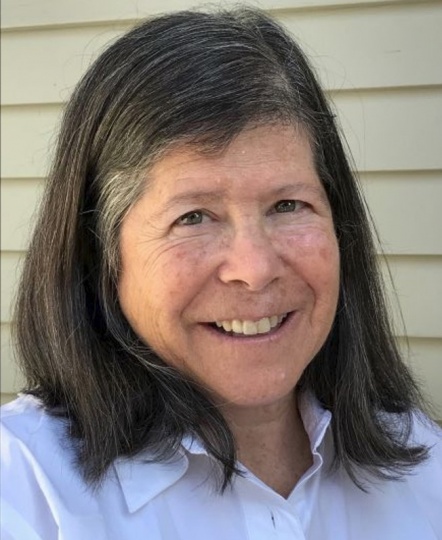
After studying biology in college, she got a master’s degree in journalism from Columbia University and then wrote for a series of magazines. She made a mid-career switch to radio and worked at NPR for 18 years, doing audio stories on medical research, health policy, global health, and mental health. In 2010 she moved to Seattle where she freelanced and taught journalism and radio reporting for 8 years at the University of Washington, then continued freelancing from London for 2 years, meanwhile commissioning and editing global health stories for the British Medical Journal. She’s won numerous awards, including the Victor Cohn Prize for Medical and Science Writing and the Keck Communication Award from the National Academy of Sciences, had year-long fellowships at the Harvard School of Public Health and from the Kaiser Family Foundation, and was a Rosalynn Carter Mental Health Journalism Fellow, focusing on the treatment of mental illnesses, including post-partum depression, in developing countries. She’s mentored Pulitzer Center grant recipients and has received support from the center for a series of reporting projects from Haiti, India, Uganda, Australia, and Fiji. She’s a founding member of the Association of Health Care Journalists. Recent stories have appeared in STAT, WIRED, NPR, Undark, and Global Health Now.
































































































